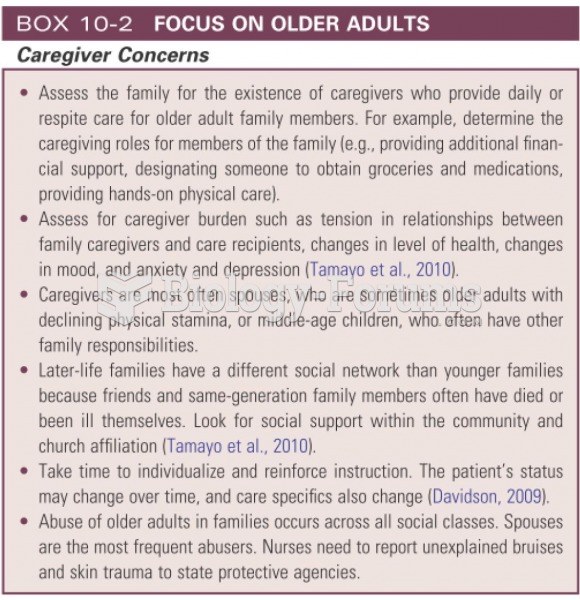This topic contains a solution. Click here to go to the answer
|
|
|
Did you know?
The shortest mature adult human of whom there is independent evidence was Gul Mohammed in India. In 1990, he was measured in New Delhi and stood 22.5 inches tall.
Did you know?
Opium has influenced much of the world's most popular literature. The following authors were all opium users, of varying degrees: Lewis Carroll, Charles, Dickens, Arthur Conan Doyle, and Oscar Wilde.
Did you know?
Vaccines prevent between 2.5 and 4 million deaths every year.
Did you know?
A seasonal flu vaccine is the best way to reduce the chances you will get seasonal influenza and spread it to others.
Did you know?
Lower drug doses for elderly patients should be used first, with titrations of the dose as tolerated to prevent unwanted drug-related pharmacodynamic effects.
 A well-folded letter fits easily into the envelope and is easily removed by the person who receives ...
A well-folded letter fits easily into the envelope and is easily removed by the person who receives ...
 Sites of cholinergic antagonist actions. Muscarinic antagonists block cholinergic receptors in the ...
Sites of cholinergic antagonist actions. Muscarinic antagonists block cholinergic receptors in the ...





